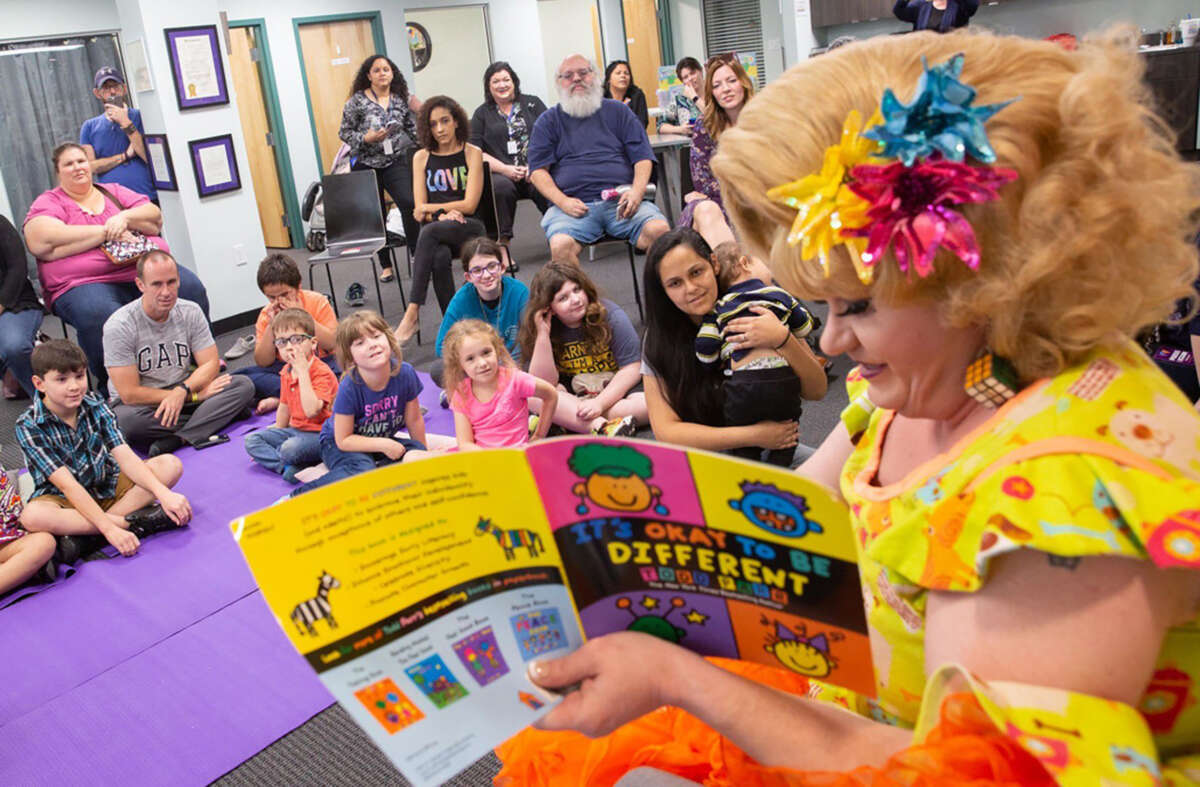Truthout is an indispensable resource for activists, movement leaders and workers everywhere. Please make this work possible with a quick donation.
A Republican lawmaker in the Oklahoma state legislature has proposed a bill that would criminalize certain drag performances that take place in public spaces.
The bill, authored by state Rep. Kevin West (R), wrongly claims that such performances are equivalent to 18-and-over entertainment, including adult dancing or situations where nudity is present. The bill’s text specifically singles out kid-friendly events that have no sexual connotations whatsoever — including the popular library reading program “Drag Queen Story Hour.”
West claims that the bill would still allow people to host drag performances in private areas. “It wouldn’t be allowed where just the general public would be able to see the performance. So like a library or a school or something like that would fall into being under the jurisdiction of this bill,” West told Business Insider.
But the bill’s parameters for what types of venues would be allowed to host drag shows are vague, including for G-rated performances where parents could voluntarily bring their children to be entertained.
“It shall be unlawful for a person to organize or authorize the viewing of a drag queen story hour on public property or in a location where the drag queen story hour could be viewed by a person who is a minor,” reads the bill, which is scheduled for a February 6 floor hearing in the Oklahoma state House of Representatives.
If the bill becomes law, private establishments like restaurants or bookstores could potentially be banned from hosting drag performances; those found in violation of the law would be subject to fines of up to $20,000 and could be imprisoned for as many as two years.
The bill is one of the latest legislative attacks on drag performers in statehouses across the country. Proposals that sexualize non-sexual drag events are part of a deeper line of attack on the greater LGBTQ community, wrote Washington Post gender and society columnist Monica Hesse last summer.
“The debate must be shifted ‘to sexualization,’ because without such a shift, there would be no debate,” Hesse said, adding that:
The uproar over such a sincerely wholesome event makes it plain what the issue really is: not parental rights. Not sexualization. Not the content of what the drag queens are reading to the kids. It’s the existence of drag queens. It’s the idea that someone might present in a way that was at odds with a certain vision of how men or women should dress or present or behave.
Nicole McAfee, executive director of Freedom Oklahoma, condemned the bill for placing a target on drag performers.
The bill would create “a situation that could put a lot of Oklahoma individual performers and small businesses out of business and create real harm in censoring expression of artists across the state,” McAfee said to Fox 25 in Oklahoma City.
A terrifying moment. We appeal for your support.
In the last weeks, we have witnessed an authoritarian assault on communities in Minnesota and across the nation.
The need for truthful, grassroots reporting is urgent at this cataclysmic historical moment. Yet, Trump-aligned billionaires and other allies have taken over many legacy media outlets — the culmination of a decades-long campaign to place control of the narrative into the hands of the political right.
We refuse to let Trump’s blatant propaganda machine go unchecked. Untethered to corporate ownership or advertisers, Truthout remains fearless in our reporting and our determination to use journalism as a tool for justice.
But we need your help just to fund our basic expenses. Over 80 percent of Truthout’s funding comes from small individual donations from our community of readers, and over a third of our total budget is supported by recurring monthly donors.
Truthout has launched a fundraiser, and we have a goal to add 182 new monthly donors in the next 24 hours. Whether you can make a small monthly donation or a larger one-time gift, Truthout only works with your support.
